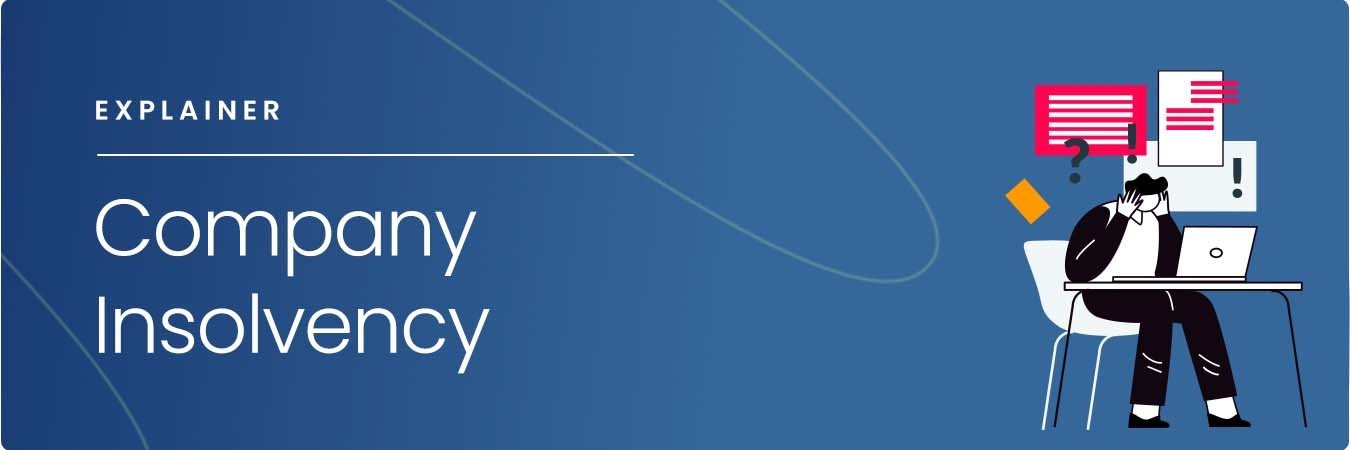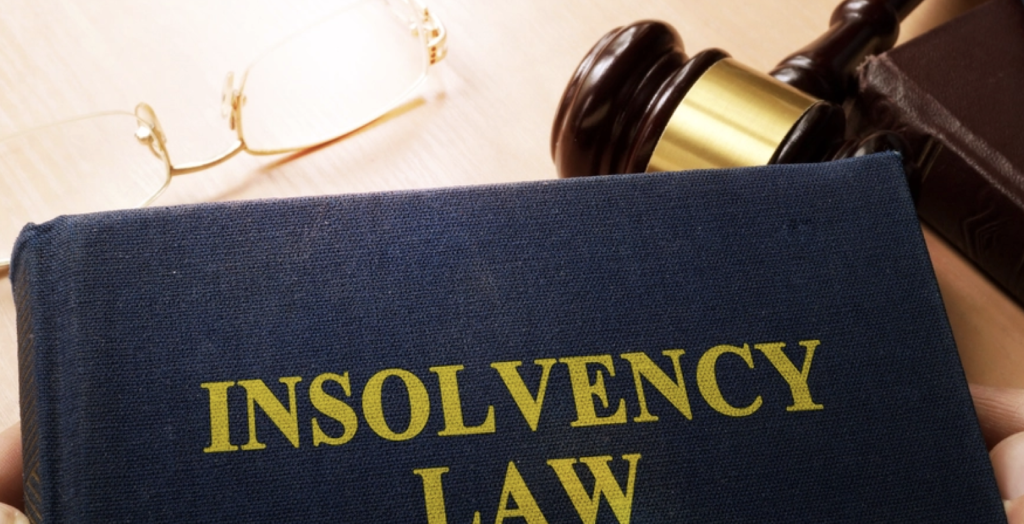The Best Guide To Insolvency Practitioner
The Best Guide To Insolvency Practitioner
Blog Article
Unknown Facts About Insolvency Practitioner
Table of ContentsHow Insolvency Practitioner can Save You Time, Stress, and Money.Insolvency Practitioner Fundamentals ExplainedThe smart Trick of Insolvency Practitioner That Nobody is DiscussingUnknown Facts About Insolvency PractitionerInsolvency Practitioner for Beginners4 Easy Facts About Insolvency Practitioner ExplainedInsolvency Practitioner Things To Know Before You Get This
Insolvency is when obligations are more than the value of the firm, or when a borrower can not pay the financial debts they owe. A firm can come to be financially troubled because of a variety of situations that bring about inadequate capital. When faced with insolvency, a business or person can call financial institutions directly and restructure financial obligations to pay them off.Organization proprietors might get in touch with lenders straight and restructure debts right into even more convenient installments. Creditors are commonly open to this method because they desire to be paid off and prevent losses, even if the settlement is on a postponed schedule.
Insolvency Practitioner for Beginners
The proprietor develops a proposition outlining just how the debt might be restructured utilizing expense decreases or various other plans for support. The proposal reveals financial institutions how business may create adequate capital for profitable operations while paying its financial obligations. Usually, a forgiven debt may be taken into consideration income by the Internal Income Solution (INTERNAL REVENUE SERVICE).

The smart Trick of Insolvency Practitioner That Nobody is Talking About
Business may finish up paying large amounts of cash in problems and be unable to proceed procedures. When operations cease, so does the business's earnings. Lack of earnings leads to unsettled bills and financial institutions requesting money owed to them. Some firms become insolvent because their goods or services do not evolve to fit consumers' changing requirements.
Expenditures surpass earnings and costs remain unpaid. Cash-flow insolvency takes place when a firm has the properties to cover their financial debts but they are in the incorrect form, such as actual estate instead of fluid funds. Balance-sheet bankruptcy, on the other hand, shows an absence of properties in any kind of kind to cover debts.
The IRS states that a person is bankrupt when the overall liabilities surpass overall properties. A insolvency, on the various other hand, is a real court order that portrays just how a bankrupt person or company will pay off their lenders, or how they will certainly offer their assets in order to make the settlements.
The Only Guide for Insolvency Practitioner

Debt combination is when you integrate numerous lendings into one new lending, frequently to accomplish better terms. Insolvency is not the same as personal bankruptcy, although a company that has actually come to be financially troubled might declare personal bankruptcy. Insolvency is the state of not being able to pay your commitments while bankruptcy is a lawful procedure to discharge your debts.
Understanding the aspects that can lead to insolvency, such as overspending, can aid you prevent insolvency and its repercussions.
The Single Strategy To Use For Insolvency Practitioner
It is popular that supervisors and policemans of firms (and supervisors of minimal responsibility business) owe fiduciary tasks to their companies and their investors (or participants). These fiduciary obligations are specified by state laws and, though there are variations from one state to another, they normally include a responsibility of loyalty and a duty of care.
The obligation of treatment needs directors and policemans to exercise persistance, to make informed decisions, and to act in great faith to ensure that their actions are in the very best rate of click over here now interest of the firm. Though beyond the scope of this discussion, some states permit these obligations to be restricted either by so keeping in mind in the organizational records or abiding with various other demands.
The Greatest Guide To Insolvency Practitioner
Most states specify insolvency in 2 methods( 1) when a firm's obligations end up being higher than the amount of its possessions or (2) when the company comes to be not able to pay its debts as they come to be dueand accept both interpretations (Insolvency Practitioner). The change in duties takes place since when a firm is financially troubled, there is no value in the business past that owed to the business's financial institutions to ensure that the equity holders no more have a financial risk in the business
Take care about offering investors favoritism at the expense of financial institutions (e.g., licensing and moneying a returns or a stock redemption). Take care regarding favoritism between classes of shareholders. Clear up efforts to find out all the truths before taking a certain strategy; supervisors must really believe that any type of decisions made are in the most effective interests of the firm in its entirety (i.e., decisions will be evaluated in hindsight in light of the effect of such activities on the company).
In any type of bankruptcy or insolvency case, repayments made to certain creditors at the expenditure of various other creditors can be clawed back, specifically if there is some link between the firm and the financial institution. Consider recommending at an annual he has a good point stockholder meeting (or any various other meeting of stockholders) a resolution verifying that all prior organization decisions and activities taken by the supervisors and officers of the firm were taken in excellent faith after a workout of sensible care.
Some Ideas on Insolvency Practitioner You Should Know
Fully disclose any personal or company partnerships with parties beyond of transactions including the firm to avoid the appearance of a dispute of rate of interest. In assessing possible fund raising transactions or a sale of possessions of the important source distressed company, understand that these transactions may be looked at later on in light of any succeeding development of directors' fiduciary obligations to consist of lenders.
Report this page